Publications
Articles, publications, books, tools and multimedia features from the U.S. Institute of Peace provide the latest news, analysis, research findings, practitioner guides and reports, all related to the conflict zones and issues that are at the center of the Institute’s work to prevent and reduce violent conflict.
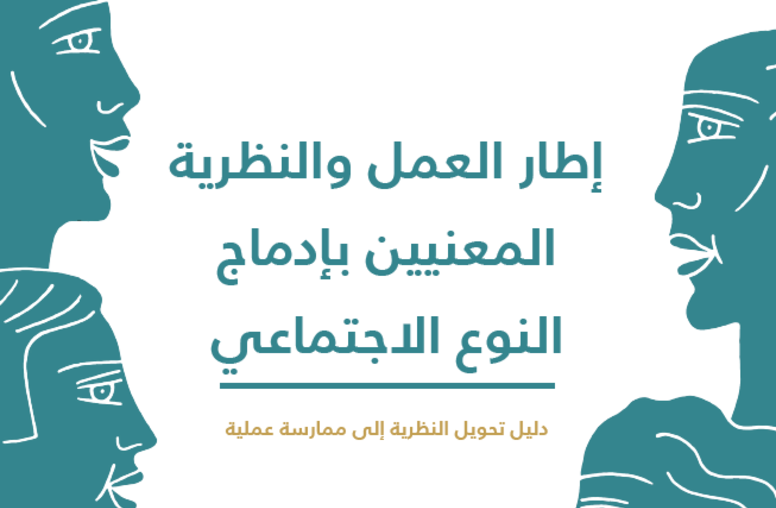
Gender Inclusive Framework and Theory (Arabic)
(Arabic) The Gender Inclusive Framework and Theory (GIFT) guide is an approachable and thorough tool that facilitates the integration of gender analysis into project design. Because peacebuilding work is context dependent, the GIFT puts forth three approaches to gender analysis – the Women, Peace and Security Approach; the Peaceful Masculinities Approach; and the Intersecting Identities Approach – that each illuminate the gender dynamics in a given environment to better shape peacebuilding projects.

Kathleen Kuehnast on the Inaugural Women Building Peace Award
USIP’s Kathleen Kuehnast discusses the inspiring work of Women Building Peace Award recipient Rita Lopidia of South Sudan, as well as the other finalists, praising “the incredible resilience that each of these 10 women has brought to situations of inequality, of extreme violence, and despair.”

America can build peace better—if it includes women.
The United States is making a publicly little-noted stride this month to strengthen its response to the violent crises worldwide that have uprooted 80 million people, the most ever recorded. Officials are overhauling America’s method for supporting the “fragile” states whose poor governance breeds most of the world’s violent conflict. Yet the proven new approach—helping these countries meet their people’s needs and thus prevent violence and extremism—will fall short if its implementation fails to include and support women in every step of that effort. Fortunately, an earlier reform to U.S. policy offers practical lessons for doing so.

Kathleen Kuehnast on Women in Conflict Zones
At a recent USIP event, Nobel laureate Nadia Murad discussed her efforts to end sexual violence and human trafficking—two criminal practices that Kathleen Kuehnast says “have been institutionalized and militarized.” To disincentivize these human rights abuses, Kuehnast says we must reinforce that these heinous but often lucrative practices are “not a livelihood—this is criminality.”

Kathleen Kuehnast on the 2018 Nobel Peace Prize Winners
Highlighted by the 2018 Nobel Peace Prize award to Dr. Denis Mukwege and Nadia Murad—advocates for survivors of wartime sexual violence—the issue of sexual abuse has gained international recognition. USIP’s Kathleen Kuehnast attended the ceremony, saying, “People were standing in solidarity to what they were hearing. We can no longer be indifferent about this type of criminal activity.”
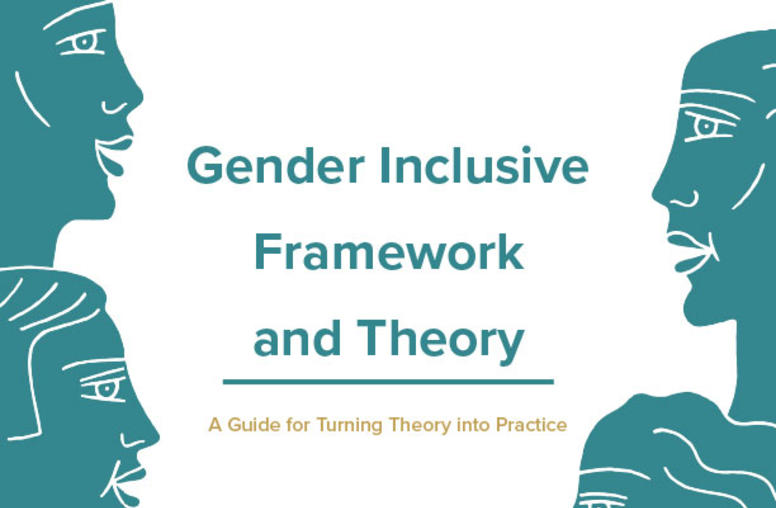
Gender Inclusive Framework and Theory
The Gender Inclusive Framework and Theory (GIFT) guide is an approachable and thorough tool that facilitates the integration of gender analysis into project design. Because peacebuilding work is context dependent, the GIFT puts forth three approaches to gender analysis – the Women, Peace and Security Approach; the Peaceful Masculinities Approach; and the Intersecting Identities Approach – that each illuminate the gender dynamics in a given environment to better shape peacebuilding projects.
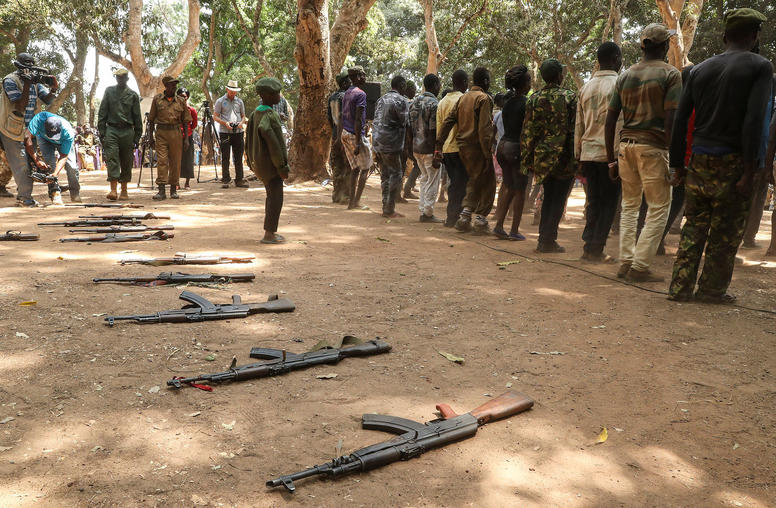
Our Dangerous Children: The Global Risks of Neglect
Intermittently, images spring from the news to shock us with the suffering of children brutalized by war or their families' desperate flight as refugees. Three years ago, the body of Alan Kurdi, a Syrian boy drowned on a Turkish beach, administered that shock. Central American children uprooted by the violence of Honduras or El Salvador now underscore the same message—that amid the world's people scarred by war and violence, a special danger is children. Among the 65 million people torn from their homes, most by warfare, roughly half are children.

Dr. Kathleen Kuehnast on International Women’s Month
For International Women’s Month, Kathleen Kuehnast underscores the importance of women’s contribution to peace and security. Dr. Kuehnast argues that the new millennium, whether through U.N. Security Council Resolution 1325 or less formal engagement via social media, has empowered women to take a greater role in peace building.
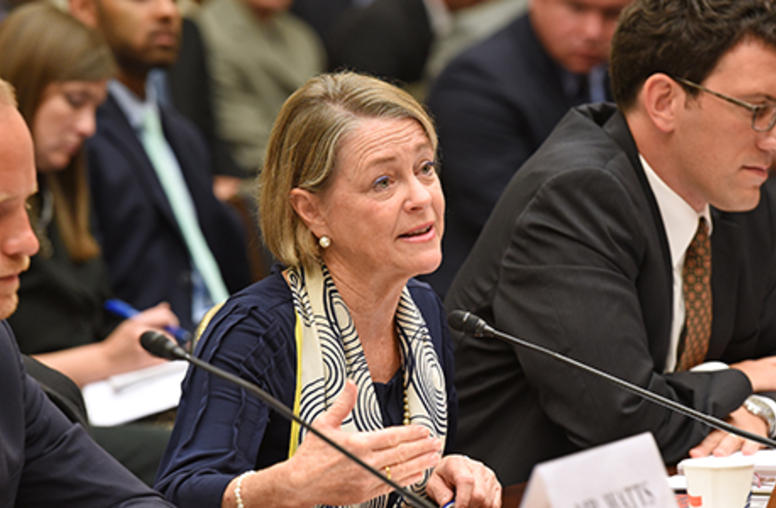
Women Under ISIS Rule: From Brutality to Recruitment
Dr. Kathleen Kuehnast, director of gender programs at the U.S. Institute of Peace, testifies before the House Foreign Affairs Committee. More from Dr. Kuehnast following her testimony, ”How ISIS Exploits Children by Manipulating Gender Dynamics."
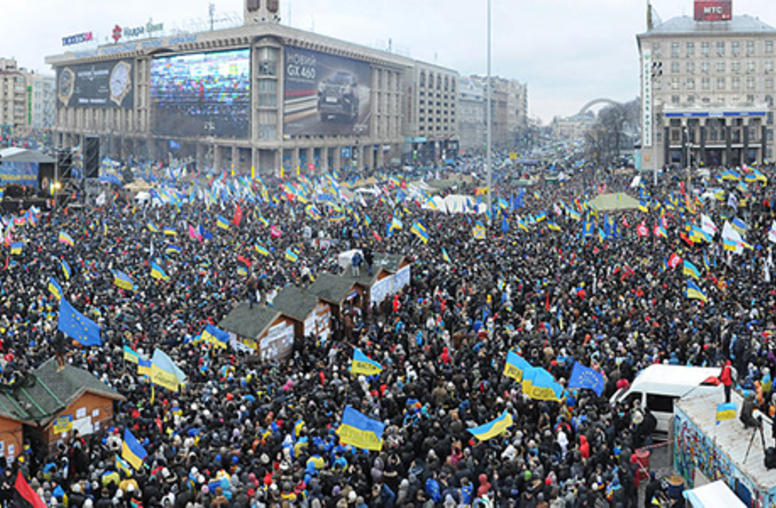
Ukraine-Russia Conflict Colors View of Civic Roles in Central Asia
Ukraine and the countries of Central Asia wouldn’t seem to have much in common other than their former Soviet past. But post-Soviet Russian ambitions may be linking them in unexpected ways. The outcome of Ukraine’s current effort to consolidate its democracy, against Russia’s resistance, has ramifications for whether the Central Asian countries view civil society and democracy as a driver of instability or a force for reform.